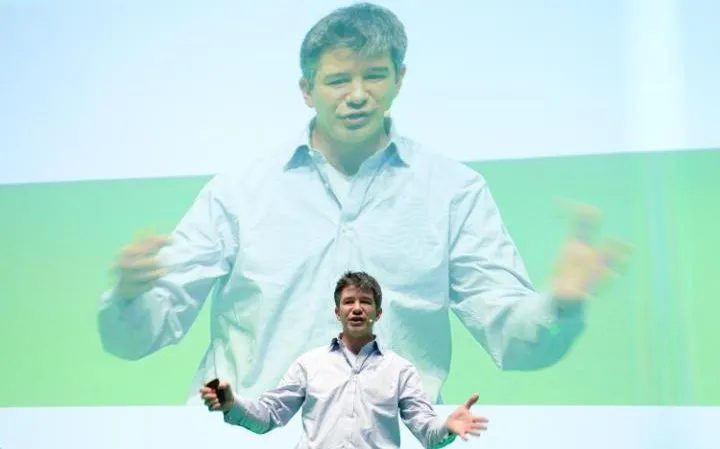The ruthless streak
Uber had a most ruthless streak. Rather than engage in a painstakingly slow dialogue with city halls before launching somewhere, Kalanick and his fellow conspirators would do the reverse: plant their flag, have it become part of the furniture, and then deal with the consequences once consumers are on your side.
It’s easier to beg for forgiveness, so the saying goes, than ask for permission.
Unfortunately for Kalanick, he has had to ask for forgiveness one too many times. Two days ago, the company’s founder resigned as chief executive after investors’ patience had finally been exhausted by a series of scandals.
Double edged sword
Perhaps the only surprise was that it took this long. In most companies afflicted by the problems Uber has been dealing with, its leader would have fallen on his sword a long time ago.
The world’s most valuable start-up, valued at almost $70bn (£55bn), has been a byword for controversy for years. Opponents claim that since drivers often do not have to abide by the same training or safety standards as taxi drivers, they put passengers at risk. Uber has been accused of further clogging up congested cities, while its surge pricing, which raises the cost of a ride in periods of peak demand, has been attacked as exploitative.
The company’s relationship with its own drivers has always felt like one of convenience. They are not staff but defined as self-employed, meaning that they are not guaranteed the minimum wage (Uber says they earn significantly more on average), pay their own expenses, and do not qualify for holiday or sick pay. Uber is also experimenting with cars that can drive themselves, ruthlessly threatening to make existing drivers obsolete.
His survival had been extended by Silicon Valley’s cult of the founder, which often extends more credit than is due to visionary tech leaders and inspires tremendous loyalty in employees. For a while, there had also been little evidence that Uber’s internal problems were affecting business: most of the millions of consumers who use the service seemed to have little interest in the cloud engulfing the company.
But in the US, Uber eventually started to leak market share to Lyft, its closest rival. With the company still losing hundreds of millions of dollars a month, it can hardly afford to see its lead slip further if it is to justify its astonishing valuation.
Observers had not failed to notice how the company’s backers had stayed silent for so long. Perhaps it was the threat of losing their investments that eventually forced a group of shareholders, led by Benchmark Capital, to force Kalanick out.
At least when they finally spoke up, it was to make the right decision. For Uber’s sake, Kalanick had to go.
